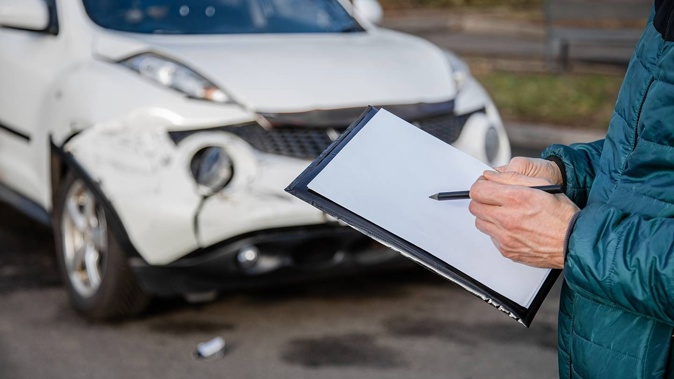
New figures reveal vehicle insurance premiums are rising rapidly – far outpacing the rising price of vehicles, vehicle parts, vehicle repairs and incomes.
Data compiled by the online insurance platform Quashed shows the average comprehensive premium quote on the website in the March quarter was $1,309, up 40 per cent on the average quote a year ago.
The average third party quote, including fire and theft, was $500, also a 40 per cent increase on a year ago.
Stats NZ recorded a 22.6 per cent rise in average vehicle insurance premiums over the period, well above the 4.1 per cent rise in incomes.
Insurance Council Chief Executive Kris Faafoi said several factors were contributing to rising premiums, including the rising cost of repairing vehicles, the number of potholes created by bad weather, and the thousands of cars written off after Cyclone Gabrielle.
Stats NZ data showed the actual price of vehicles increased only slightly – new vehicle prices up 0.9 per cent, used vehicle prices up 0.3 per cent, and the price of motorbikes up 0.3 per cent.
However, the price of vehicle parts rose 5.6 per cent and the price of vehicle repairs increased 5.5 per cent.
Faafoi said more consumers were also opting for pricier later model cars that could be more expensive to replace and repair.
“If anyone's replaced the windscreen lately, it's not just the glass itself, it's the technology in it that you have to get replaced too. All of those things are flowing into premiums."
Consumer NZ campaigns adviser Abby Damen said prices could vary widely based on age, gender and how often a vehicle is driven.
She said getting regular quotes from at least three insurers could save a motorist between $450 and $670 dollars a year, and it's important people understood their policy and reviewed it when circumstances changed.
“Let's say you're suddenly parking your car in your garage, or you don’t have a teenager driving your car anymore because they've moved out of home. You don't want to be paying for cover that you don't actually need."
Faafoi said anyone who is struggling should have a conversation with their insurer about their options.
"There are lots of things that insurers can do, like looking at excesses and policy details to make sure the settings are right.”
Take your Radio, Podcasts and Music with you









